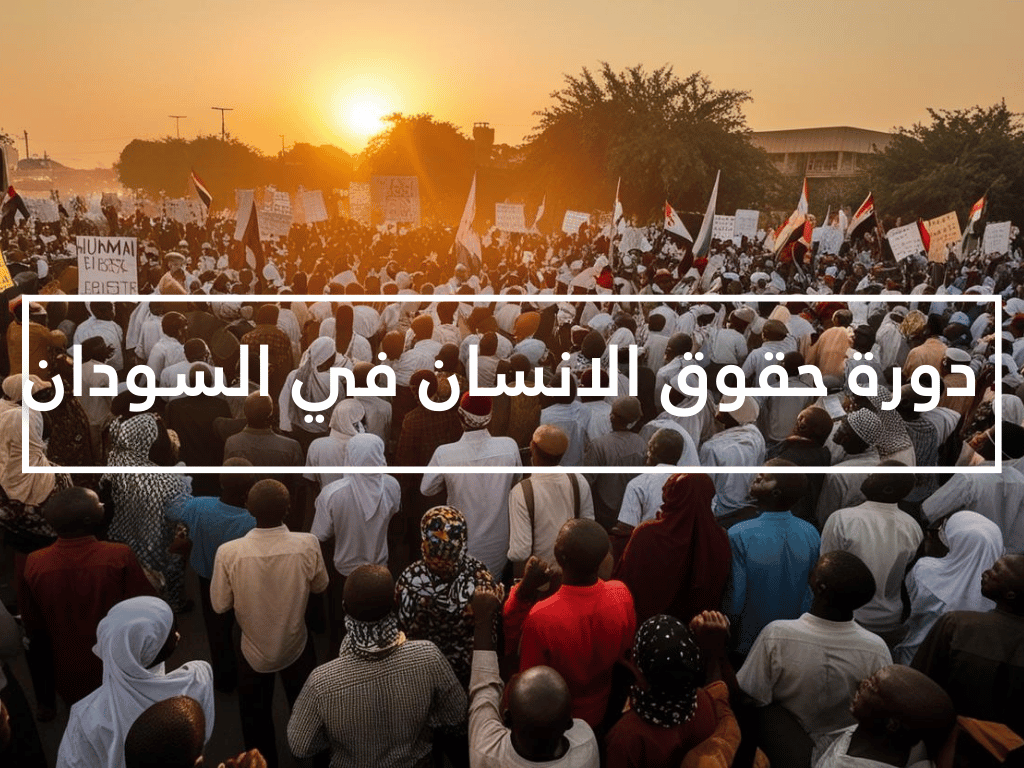Overview
This training was conducted in Arabic over five weeks between May and June 2024, online. It aimed to empower participants with a deep and comprehensive understanding of democracy and its dimensions in the Sudanese historical context, as well as an understanding of various related topics such as the concept of power, social movements, civil society, constitution-building, development, women's participation, and other important issues.
Course Structure and Duration
This training course relied on a variety of training methods, including interactive lectures and group discussions, providing participants with the opportunity to gain a deeper understanding of the content, engage in discussions, and connect with the alumni network.
- Lectures: The course consisted of 4 lectures spread over 4 weeks, covering topics such as human rights, democratic transition, peacebuilding, and advocacy.
- Discussion Session: Weekly discussion sessions were held among participants to discuss the lecture content, ask questions, and provide feedback. Participants were divided into groups, with no more than 15 participants in each discussion room.
- Certificates: Participants receive certificates of completion after attending all the lectures, participating in discussions, and passing the final exam.
Impact and Outcomes:
A total of 315 participants attended the course, with 159 completing all course requirements. Participants came from various age groups, educational backgrounds, and countries of residence. The group consisted of 70% males and 29% females. Most participants were in the age group of 25 to 35 years, with a smaller group in the 20-24 and 35-45 age ranges.
Participants' Satisfaction: Satisfaction ratings after the training were consistently high across all topics, with participants expressing a high level of satisfaction with the content, trainers, and practical applications.
Applicable Skills: Many participants indicated that they now possess practical skills in advocacy and conflict resolution, which they plan to apply in their various roles within NGOs, civil society organizations, and local communities.
Course Topics:
- Human Rights: International Human Rights Law, Human Rights in Conflict Areas, the Role of Civil Society in Promoting Rights, and Accountability Mechanisms.
- Democracy: Concepts, Principles, Democratic Processes, Electoral Systems, the Role of Civil Society in Protecting Democracy, and the Relationship Between Democracy, Governance, and Development.
- Peacebuilding and Conflict Resolution: Peacebuilding Frameworks, Post-Conflict Environments, Grassroots Peace Efforts, Negotiation Techniques, Mediation Processes, and Conflict Resolution Mechanisms.
- Advocacy and Strategic Messaging: Developing Effective Advocacy Campaigns, Crafting Strategic Messages, Engaging Stakeholders, and Using Traditional and Digital Media for Advocacy.

